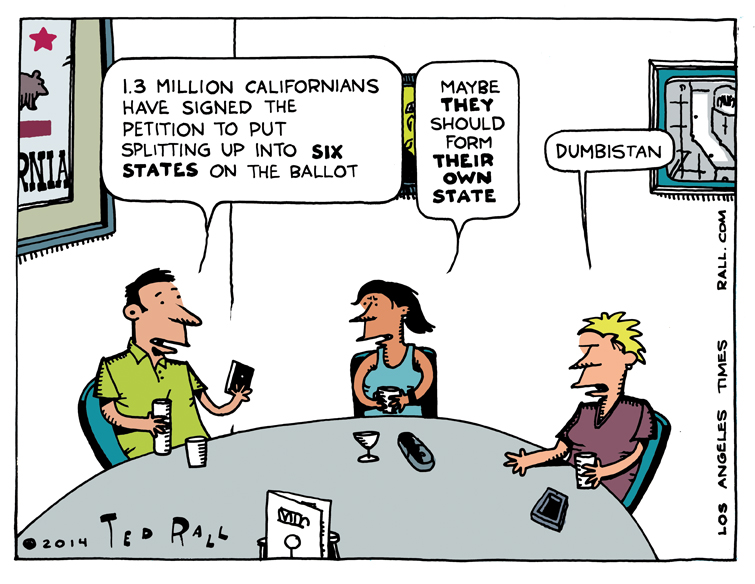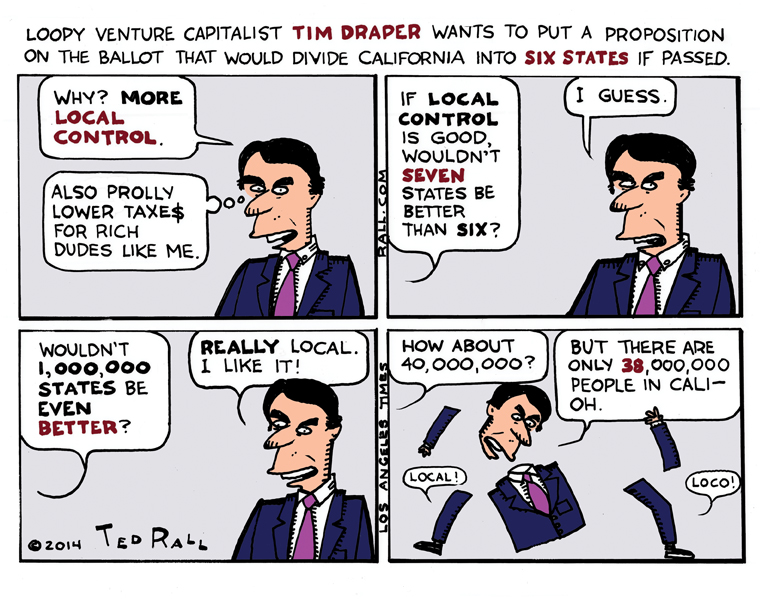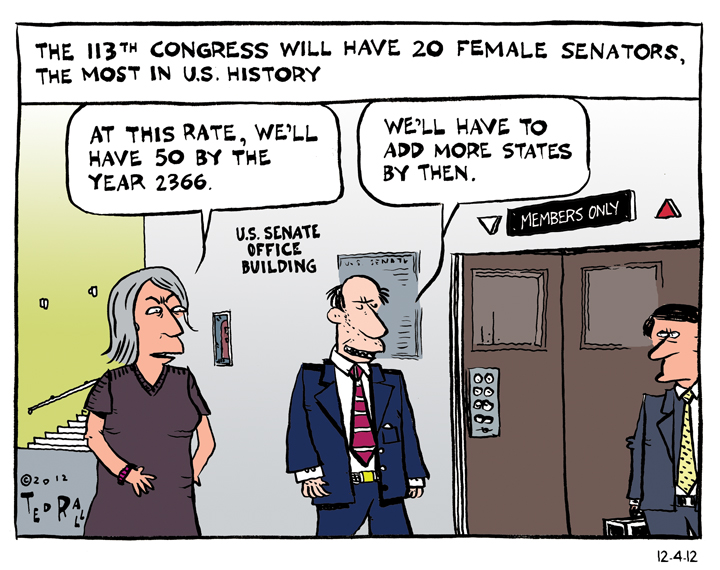Check out the latest edition of the DMZ America Podcast, where a pair of American political cartoonists (Ted Rall, who leans left, and Scott Stantis, who leans right) who happen to be best friends analyze and discuss the major and minor stories of the week while having a few laughs along the way. This week: no flamethrower drones. But coelacanths!
A new kind of poll dissects public opinion about presumed presidential nominees Joe Biden and Donald Trump as we begin the 2024 campaign cycle. We already knew that voters did not want this rematch. What we did not know was that so many voters do not believe either man is fit to hold office. Scott asks: where do we go from here and what does this say about American democracy?
CNBC issues its latest list of the best and worst states to live in. Vermont is supposedly best. Texas is supposedly worst. You might find the results interesting, frustrating, even perplexing. Like everything these days, politics has a lot to do with it.
Walmart has become the latest organization to embrace a new trend of sensory-friendly hours for neurodivergent people. Ted applauds the move to make public spaces more pleasant for everyone while Scott suggests that we might want to buck up and quit whining.
Watch the Video Version of the DMZ America Podcast:
DMZ America Podcast Ep 109 Sec 1: Neither Biden Nor Trump Fit for Office
DMZ America Podcast Ep 109 Sec 2: Texas Sucks Best
DMZ America Podcast Ep 109 Sec 3: Highly Sensitive People Catch a Break




